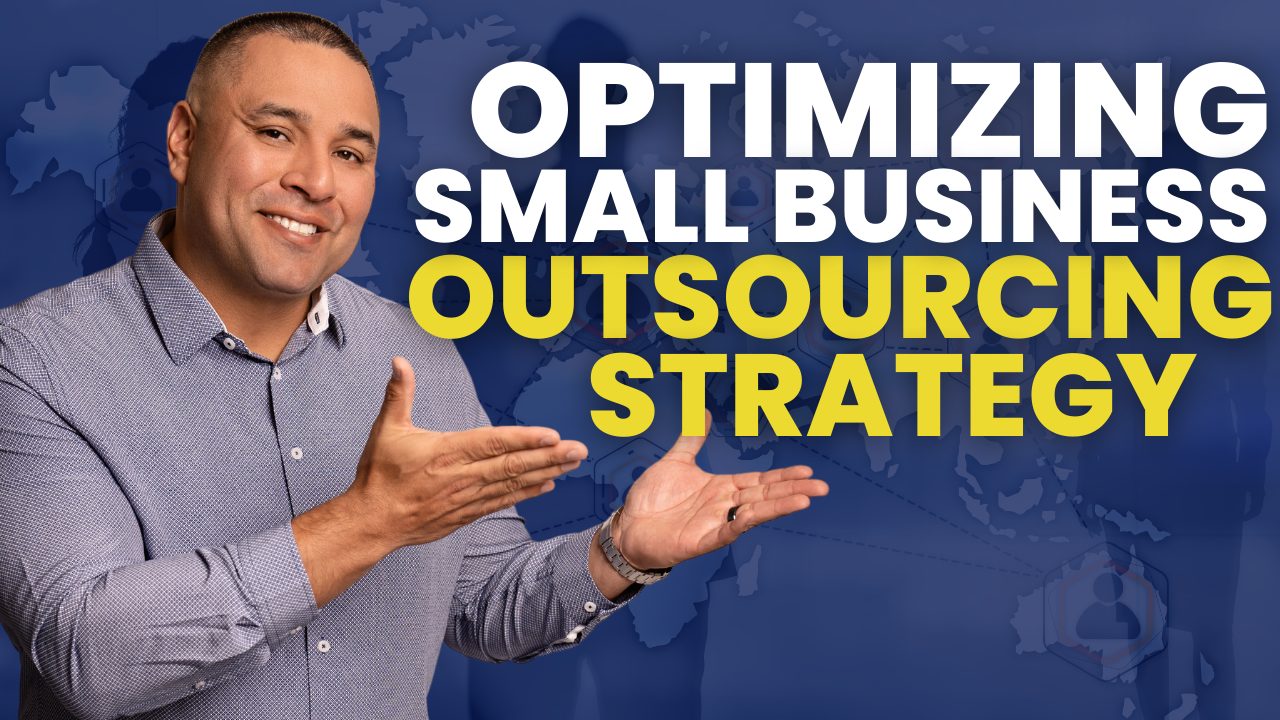Rethinking Your Small Business Outsourcing Strategy: No Room for Guilt
As the small business landscape evolves, we are presented with many opportunities to harness the power of technology, digital connectivity, and the freelance market. Many profitable small businesses have seen immense growth and success through strategic outsourcing. Yet, as with any business decision, the impact of hiring contractors needs to be continuously evaluated, ensuring they contribute positively to your bottom line.
“Harnessing the Power of Outsourcing”
The beauty of outsourcing is its flexibility. You can bring in an expert for a specific task, for a set period, and without the commitments that come with a full-time employee. It’s an especially great resource for roles like social media management, virtual assisting, content creation, graphic design, bookkeeping, IT support, and even specialized tasks like SEO optimization or e-commerce setup.
However, it’s essential to remember that hiring a contractor isn’t about filling a seat; it’s about enhancing productivity and profitability. If a contractor is not adding value to your business, it may be time to reassess their role. There’s a common misconception that it’s harsh or unethical to part ways with an underperforming contractor swiftly, but this mindset could hinder your business’s growth.
Let’s clear one thing up: there’s no room for guilt in making sound business decisions. As a small business owner, your priority is to ensure the prosperity of your company and safeguard your employees’ livelihood. If a contractor is not adding value, there’s no shame in saying goodbye. Swift action can prevent further loss, allowing you to redirect resources where they can be more effective.
“Evaluating the Contractor’s Impact: A ‘No-Guilt’ Rule”
Consider a scenario where a small business hires a social media manager as a contractor. The manager comes highly recommended and has an impressive portfolio. Yet, after a few months, the engagement metrics are still lackluster. The owner has a choice: should they stick it out, hoping for an improvement or cut their losses?
The answer becomes clear if we apply the ‘no-guilt’ rule here. It’s time to look for a replacement—someone with a different approach, a better understanding of the target audience, or more innovative strategies. Remember, social media is not just about having a presence. It’s about customer engagement, brand building, and sales conversion.
“Applying the ‘No-Guilt’ Rule in Real Scenarios”
The same goes for hiring a virtual assistant. A small business might bring one on to handle administrative tasks. If the assistant is frequently unavailable, misses deadlines, or consistently makes errors, it doesn’t matter if they are the most affordable option on the market. The business owner shouldn’t feel guilty about replacing them. The cost of repeated mistakes and inefficiencies can far exceed the apparent ‘savings’ from a lower rate.
As a business owner, you might be worried about the reputational risk of firing a contractor. After all, the freelance community is often closely knit, and word spreads fast. However, professionalism goes both ways. If you have provided clear expectations, consistent feedback, and ample opportunities for improvement, then parting ways should not surprise the contractor.
“The Intersection of Business and Sentiment: A Delicate Balance”
Business isn’t about sentiment but sustainability, profitability, and growth. Outsourcing is a tool, not a charity. Use it wisely, and you’ll find that it can be a significant asset to your small business. An efficient contractor can bring new ideas, stimulate growth, and help you compete in today’s challenging market.
In closing, it’s important to remember that all relationships in business should be mutually beneficial. If the contractor isn’t benefiting your business, you’re not only doing your company a disservice but also the contractor, who might be better suited elsewhere. Don’t let guilt or fear stop you from making the decisions that will enable your small business to flourish.
Outsourcing allows you to focus on what you do best while leaving the rest to skilled and efficient specialists in those areas. But never forget, an outsourcing strategy is only as good as the quality and performance of the contractors you engage. The key is to remain vigilant, constantly monitoring and assessing the value they add to your business.
There’s no room for complacency. It’s crucial to review the work of your contractors regularly. If you notice a decline in productivity or the quality of work slips, do not hesitate to address it. Keep an open line of communication, express your concerns clearly, and offer them an opportunity to improve. It might be time to part ways if the situation doesn’t change.
“Navigating the Outsourcing Landscape: Finding the Right Fit”
In the larger business ecosystem, firing a contractor can allow them to find a role more suited to their skills, where they can excel and grow. Holding on to a contractor underperforming out of guilt limits their potential and holds your business back.
As small business owners, it is easy to get attached and develop personal relationships with those we work closely with. However, the line between business decisions and personal feelings must be clearly drawn. When it comes to the future of your business, your judgment should be guided by logic, performance metrics, and the bottom line.
It’s also worth mentioning that outsourcing is not a one-size-fits-all solution. The best outsourcing roles in one business might not work well in another. The world of contractors is as diverse as the world of business. There are specialists for almost every conceivable role, from customer service representatives to payroll experts, from software developers to digital marketing strategists.
“Embracing Excellence over Guilt: Your Business Deserves the Best”
While it’s great to have such a vast pool to tap into, it also means that finding the perfect fit requires time, research, and, sometimes, trial and error. Don’t get discouraged if you don’t hit a home run with your first hire. Learn from each experience, refine your requirements, improve your vetting process, and increase your chances of finding the right fit.
Remember, your business deserves the best. Letting go of underperforming contractors should never be a guilt-ridden process. Instead, view it as a necessary step towards optimization and a more productive and profitable business. As the adage goes, ‘Business is not just doing deals; business is having great products, doing great engineering, and providing tremendous service to customers.’
Ultimately, the contractors you collaborate with should reflect this sentiment, pushing your business towards its goals. Make decisions with your business’s best interests at heart, and you’ll set the stage for sustainable growth and profitability. Always bear in mind: there’s no room for guilt in the pursuit of excellence. Hence, hiring contractors should not just be viewed as a cost-saving measure but as an opportunity to bring fresh perspectives, specialized expertise, and increased agility to your small business operations. But, like any business strategy, it’s not a set-and-forget task. Contractors should not be excluded from performance evaluations simply because they are not ‘permanent’ or ‘full-time’. Instead, they should be held to the same high standards as anyone associated with your business.
This is particularly crucial for small businesses, where the impact of each team member is magnified. A single underperforming contractor can create bottlenecks, slow down progress, and stifle growth. In contrast, high-performing contractors can propel your business forward, creating momentum that could take your business to new heights.
“The Ripple Effect: Impact of Contractors in Small Businesses”
To maintain this momentum, it’s vital to continually reassess and realign the roles and responsibilities of your contractors, keeping them in tune with your business’s evolving needs. Being responsive to changes, agile in adjustments, and swift decision-making are hallmarks of successful small businesses.
In conclusion, small businesses must be decisive in managing their relationships with contractors. Your business is your passion, your dream, and your livelihood. You’ve poured countless hours, immeasurable effort, and significant resources into bringing your vision to life. As such, every person contributing to your business, be it an employee or a contractor, should be adding value and driving your business forward.
Never feel guilty for expecting the best and demanding excellence from your team, contractors included. The success of your business depends on it. Establishing high standards and fostering a culture of accountability will pave the way for your small business’s profitable, sustainable, and prosperous future. And remember, in the business world, guilt has no place where growth is the goal. So let’s replace guilt with gusto and make the tough choices that push our businesses towards success.







